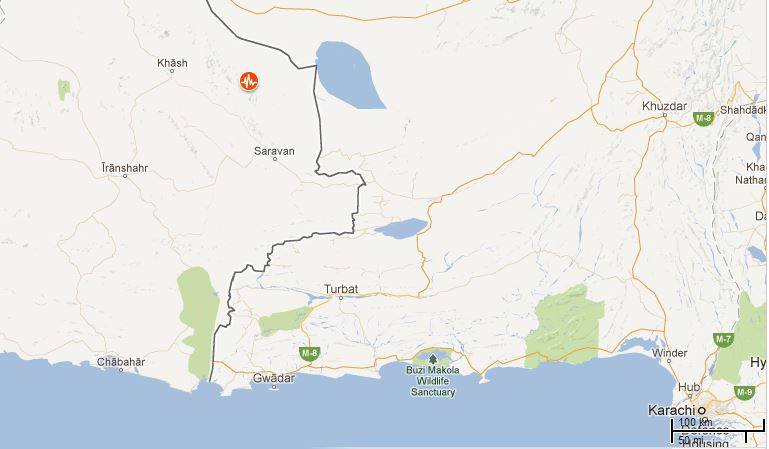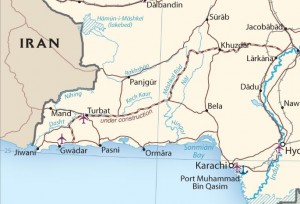Massive Earthquake in Balochistan Kills Hundreds, Creates Temporary Island
An earthquake measuring 7.7 on the Richter scale hit southwest Pakistan yesterday. The Balochistan province where the quake struck is isolated and has been plagued by sectarian violence as well as clashes between government forces and local militias.
Dawn brings us news of the devastation:
The death toll from a massive earthquake that jolted southwest Pakistan rose to 306 on Wednesday, with officials saying thousands have been left homeless in remote parts of Balochistan province.
The 7.7-magnitude quake struck Tuesday afternoon in the province, toppling thousands of mud-built homes as it spread havoc through Awaran and Kech districts and the southwestern parts of the country.
Pakistan’s military on Wednesday rushed to reach the scene of the earthquake to launch a relief operation in the affected areas. Officials said the toll was expected to rise as rescue teams reach more villages in the remote area.
Provincial home secretary Asad Gilani confirmed 306 people had been killed and more than 400 injured from the huge quake.
In the areas hit worst, virtually all of the mud homes were leveled:
The scale of the affected territory is daunting. Awaran’s population is scattered over an area of more than 21,000 square kilometres. More than 60,000 people live within 50 kilometres of the epicentre, according to the UN disaster agency, mostly in easily collapsible mud homes.
Television footage showed collapsed houses, caved-in roofs and people sitting in the open air outside their homes, the rubble of mud and bricks scattered around them.
Abdul Rasheed Baloch, a senior official in the district, said teams had worked through the night to try to retrieve bodies and survivors from the rubble. “Around 90 per cent of houses in the district have been destroyed. Almost all the mud houses have collapsed,” he said.
The earthquake hit in the late afternoon local time, so we can hope that many people were able to move out of mud brick structures before they collapsed, but it still would not be surprising for the death toll to continue a rapid climb as more information emerges from remote sites.
Just off the port city of Gwadar, the earthquake appears to have created a new island. The island is not the result of uplifting of tectonic plates but is instead a structure referred to as a mud volcano:
Mohammad Danish, a marine biologist from Pakistan’s National Institute of Oceanography, said a team of experts had visited the island and found methane gas rising.
“Our team found bubbles rising from the surface of the island which caught fire when a match was lit and we forbade our team to start any flame. It is methane gas,” Danish said on a local television news channel.
The island is about 60 to 70 feet (18 to 21 metres) high, up to 300 feet wide and up to 120 feet long, he said. It sits about 200 metres away from the coast.
Gary Gibson, a seismologist with Australia’s University of Melbourne, said the new island was likely to be a “mud volcano”, created by methane gas forcing material upwards during the violent shaking of the earthquake.
In this video, we can see the methane bubbles coming to the surface on the new island:
[youtuber youtube=’http://www.youtube.com/watch?v=yvSSqtn-L_I’]
Islands of this sort have been formed by earthquakes in the region before, and they tend to get washed away by wave action:
“It’s happened before in that area but it’s certainly an unusual event, very rare,” Gibson told AFP, adding that it was “very curious” to see such activity some 400 kilometres from the quake’s epicentre.
The so-called island is not a fixed structure but a body of mud that will be broken down by wave activity and dispersed over time, the scientist said.


